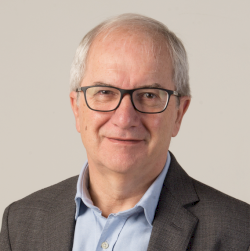Local Keynote
Jordi Varela
MD, PhD, specialist in Community and Family Medicine and post-graduate in Epidemiology and Statistics (CESAM Paris) and in Hospital Management (ESADE Barcelona). He has been CEO for 18 years in three Public Catalan Hospitals. Editor of the blog: “Advances in Clinical Management”. Senior consultant mainly in Clinical Management issues and professor of this topic in the “Executive Master in Healthcare Management” at ESADE (Barcelona and Madrid) and at Universitat Autònoma de Barcelona.
Looking for Value-Based Community Health
The Galician Health Services (SERGAS) is the public body responsible for deploying public and community health policies and offering health services to the citizens of Galicia, within the framework of a National Health System of national scope, universal coverage and financed through the general budgets. The General Health Law of 1986 gave coverage to the reform of primary care that was implemented from the decade of the 80s and 90s following the guidelines of the Alma-Ata declaration of 1978. As a result of all this, the primary health care in Spain has been planned with population criteria and with administrative circuits that give it the gatekeeper function, a key issue in the management of the entire health system.
Regarding the approach that is made to the social determinants of health and community health, in the primary care teams there is a tremendously varied reality, with professionals who, drowned by the pressure of demand, continue to act exclusively in a reactive manner and, at the other extreme, with others that undertake community actions without any scientific basis. In general, it is observed that, more or less correctly, there are primary care teams that are very involved in the affairs of their community and others that are not at all. The conclusion is that in primary care in Spain there is neither a homogeneous discourse nor a clear community health project.
Therefore, it would be advisable for the primary care teams to concentrate their efforts on developing community health programs based on the available evidence, and in relation to the strategies that should be adopted to make it viable, the model of health assets proposed by the "Alianza de Salud Comunitaria” (Community Health Alliance), which will be debated in one workshop during the Conference, could represent a revitalization for interventions in this area in terms of inter-sectoriality, positive health, participation, equity and orientation to the determinants of health.

